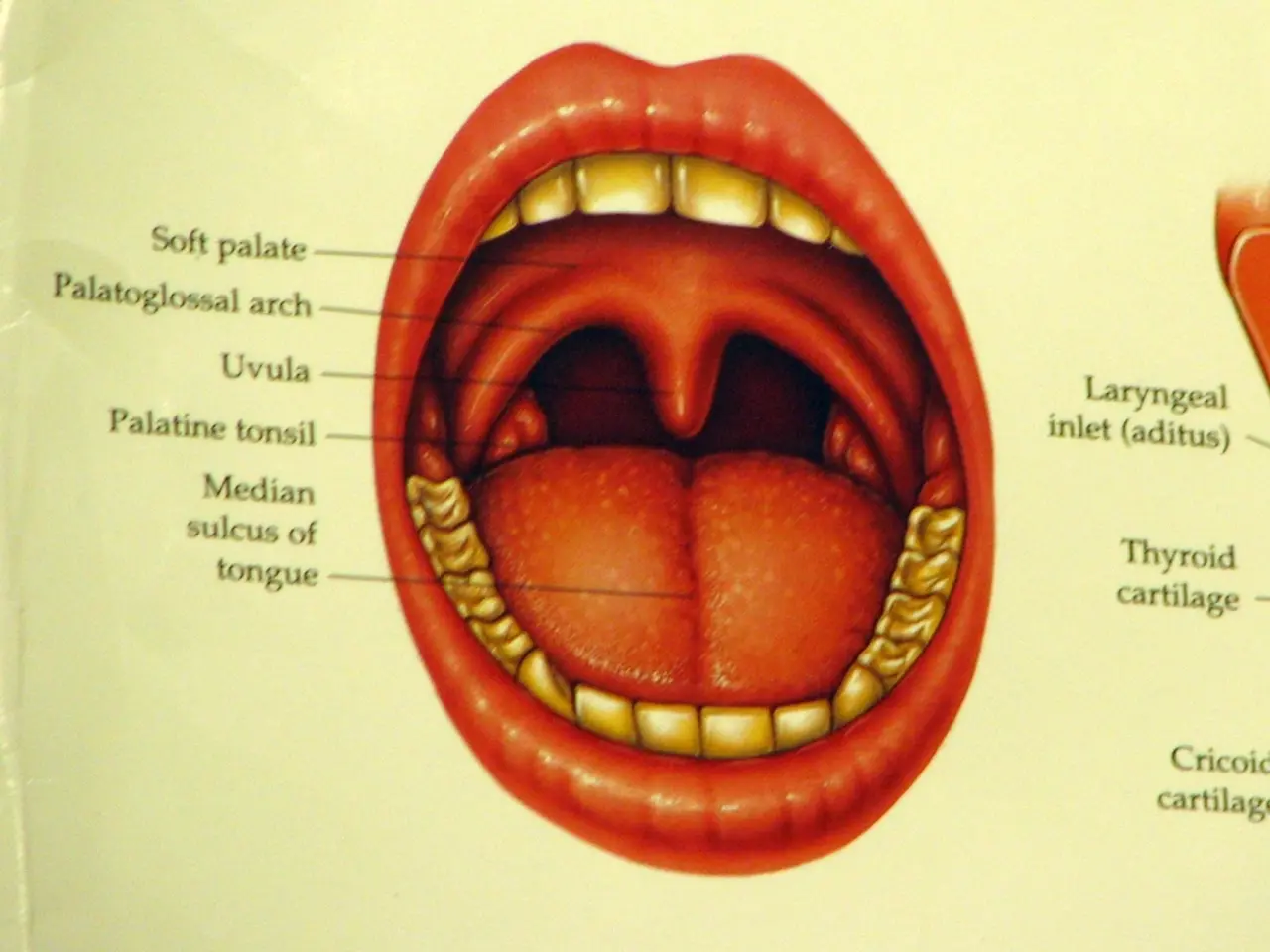Neglect in Canine Dental Hygiene Warned: Specialists Provide Handy, Actionable Tips
In the realm of pet care, keeping your dog's teeth clean and healthy is a crucial aspect that often goes unnoticed. Fortunately, there are various methods available to ensure your furry friend maintains fresh breath and healthy teeth without the need for toothbrushing.
Holistic vet Alan Slater, in collaboration with Green Pantry, has been sharing ways to maintain a dog's dental health. Brushless dental products, dental chews, regular vet checkups, and natural remedies are all effective solutions for keeping a dog's teeth clean.
**Brushless Dental Products**
Enzymatic toothpastes and gels formulated for dogs, such as ARK Naturals Protection Brushless Toothpaste, can help reduce plaque and freshen breath. These products, infused with natural ingredients, are convenient and vet-recommended. Similarly, Petsmile Professional Dog Toothpaste uses human-grade ingredients and a proprietary formula to control plaque and tartar without brushing, approved by the Veterinary Oral Health Council (VOHC).
**Dental Chews**
Daily dental chews, like Purina DentaLife Daily Oral Care Chews and Vetality Brush Free Daily Dental Chews, are VOHC-approved and help reduce tartar buildup mechanically while freshening breath. The chewy texture and ridges in these treats clean hard-to-reach teeth down to the gumline, mimicking the benefits of brushing.
**Regular Veterinary Checkups**
Scheduling routine dental checkups with your veterinarian is essential for professionally cleaning your dog’s teeth and monitoring oral health. Professional cleanings remove tartar that at-home methods cannot fully address and help prevent periodontal disease. Your vet can also recommend specific products tailored to your dog’s needs and detect early signs of dental issues.
**Natural Remedies and Additional Tips**
Incorporating natural ingredients with antibacterial or plaque-fighting properties can support oral health. After meals, you can gently wipe your dog's mouth with a clean cloth or use vet-approved oral sprays to reduce bacteria. It's also advisable to avoid foods or treats that promote plaque and encourage chewing on safe chew toys which stimulate saliva production and mechanical cleaning.
By using these methods in combination, you can ensure comprehensive dental care for your dog, promoting healthy teeth and fresh breath. Always consult your veterinarian before starting new dental products or remedies to ensure they are safe and appropriate for your pet.
It's important to remember that canine teeth play a significant role in a dog's health. Poor dental health can be linked to various health conditions, such as liver and kidney disease, heart issues, and weight loss due to reduced appetite. Brushing a dog's teeth at least three times a week, using a good dog toothbrush and toothpaste, is still recommended for optimal oral hygiene. With these guidelines in mind, you can help your dog maintain a healthy, happy smile!
In the pet health-and-wellness sphere, ensuring your cat's dental care isn't overlooked either. Safeguarding your feline's teeth guarantees fresh breath and protection against plaque and tartar buildup.
In addition, it's noteworthy to mention that same dental solutions crafted for dogs can similarly produce positive results for cats. Brushless dental products, dental chews, and natural remedies all contribute to promoting a cat's oral fitness and general health.
For instance, some dental hygiene products, such as Water Additives by Oratene or Enzymatic toothpastes designed for cats, help in fighting plaque and promoting fresher breath for your feline friends.
Aside from maintaining their skin-care, fitness-and-exercise, and mental-health, rendering regular care to your cat's dental health should be an integral aspect of your lifestyle. By regularly visiting a veterinarian for dental checkups, you can ensure your cat's oral health remains in check, and any potential issues are detected early.
Moreover, Nutrition and weight-management play vital roles in maintaining optimal oral hygiene. Feeding your pet a balanced and nutrient-rich diet supports overall health, which in turn affects dental well-being. Additionally, exceeding or exceeding your pet's recommended weight can lead to more health complications, including dental issues.
Breeds and age span a wide spectrum in felines, so tailoring dental care recommendations to your cat's specific needs becomes essential. Keeping up-to-date with veterinary advice and consulting experts is crucial for successful outcomes.
In summary, applying a multi-disciplinary approach, including dental chews, brushless products, regular veterinary checkups, and informed feeding habits, can work in tandem to maintain optimal dental health and overall well-being for your cat. Aim to provide your cat with a healthy, happy smile by incorporating these practices into their daily lifestyle!




